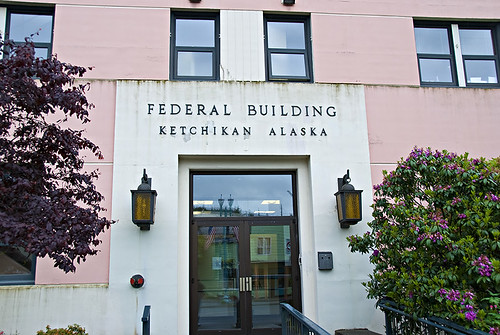If I ever had plans to do anything illegal, like break a law that has been on the books since at least 1878, I’ll just get John Yoo to write a memo saying it is ok. Law, hunh, what is good for, absolutely nothing. I’ll say it again.
Torture, Posse Comitatus, does anything else have your bloody fingerprints on it, Mr. Yoo?
The Fourth Amendment bans “unreasonable” searches and seizures without probable cause. And the Posse Comitatus Act of 1878 generally prohibits the military from acting in a law enforcement capacity.
In the discussions, Mr. Cheney and others cited an Oct. 23, 2001, memorandum from the Justice Department that, using a broad interpretation of presidential authority, argued that the domestic use of the military against Al Qaeda would be legal because it served a national security, rather than a law enforcement, purpose.
“The president has ample constitutional and statutory authority to deploy the military against international or foreign terrorists operating within the United States,” the memorandum said.
The memorandum — written by the lawyers John C. Yoo and Robert J. Delahunty — was directed to Alberto R. Gonzales, then the White House counsel, who had asked the department about a president’s authority to use the military to combat terrorist activities in the United States.
[Click to continue reading Bush Weighed Using Military in Arrests – NYTimes.com]
and then cite the memo right before doing the illegal act:
Those who advocated using the military to arrest the Lackawanna group had legal ammunition: the memorandum by Mr. Yoo and Mr. Delahunty.
The lawyers, in the Justice Department’s Office of Legal Counsel, wrote that the Constitution, the courts and Congress had recognized a president’s authority “to take military actions, domestic as well as foreign, if he determines such actions to be necessary to respond to the terrorist attacks upon the United States on Sept. 11, 2001, and before.”
The document added that the neither the Posse Comitatus Act nor the Fourth Amendment tied a president’s hands.
I certainly do not understand why Berkley employs this Yoo character, he is such a stain on the legal profession.
The Wikipedia entry for Posse Comitatus Act:
The Posse Comitatus Act is a United States federal law (18 U.S.C. § 1385) passed on June 18, 1878, after the end of Reconstruction, with the intention (in concert with the Insurrection Act of 1807) of substantially limiting the powers of the federal government to use the military for law enforcement. The Act prohibits most members of the federal uniformed services (today the Army, Air Force, and State National Guard forces when such are called into federal service) from exercising nominally state law enforcement, police, or peace officer powers that maintain “law and order” on non-federal property (states and their counties and municipal divisions) within the United States.
The statute generally prohibits federal military personnel and units of the National Guard under federal authority from acting in a law enforcement capacity within the United States, except where expressly authorized by the Constitution or Congress. The Coast Guard is exempt from the Act during peacetime.
[Click to continue reading Posse Comitatus Act – Wikipedia, the free encyclopedia]
Seems clear enough. Except for John Yoo.
John Yoo and the so-called Torture memos, if you had forgotten the details:
You have to give John Yoo credit for chutzpah. The disgraced author of the so-called torture memo was back in the news last week, when the Obama administration released seven more secret opinions, all but one written in whole or in part by Yoo and fellow Office of Legal Counsel (OLC) lawyer Jay Bybee, arguing that the Bush administration had the right to override the Constitution as long as it claimed to be fighting a “war on terror.” Professor Yoo, who I am embarrassed to say holds a tenured position at the law school of my alma mater, the University of California at Berkeley, was already known as the official who provided a legal fig leaf behind which the Bush administration tortured inmates at Guantánamo and Abu Ghraib. His legal misdeeds are widely known, but now they have been exposed chapter and verse. Among the new memos is one written in 2001 [8.3 Meg PDF], in which Yoo and co-author Robert J. Delahunty advised the U.S. that the Posse Comitatus Act, which forbids the Army to be used for law enforcement, and the Fourth Amendment, which prohibits unreasonable searches and seizures, do not apply to domestic military operations undertaken during a “war on terror.”
In other words, bye-bye, Bill of Rights. This is a prescription for a police state, where not just the police but the Army can kick your door down without a warrant or probable cause, as long as the president says he’s fighting “terror.” If Barack Obama had solicited such an opinion from an obliging Justice Department lawyer because he wanted to sic the U.S. Army on a group of domestic terrorists, the right would be screaming about jackbooted federal thugs descending from black helicopters to haul off American citizens. Strangely, no conservatives have taken to the streets to warn us of the Big Government danger posed by this radical doctrine.
[Click to continue reading John Yoo Torture Memo | Salon ]
Footnotes:



















